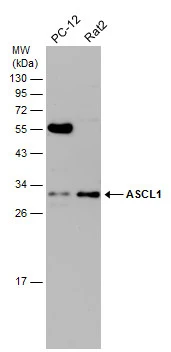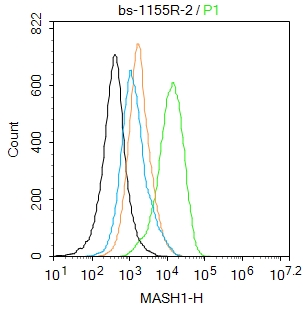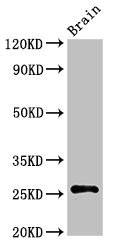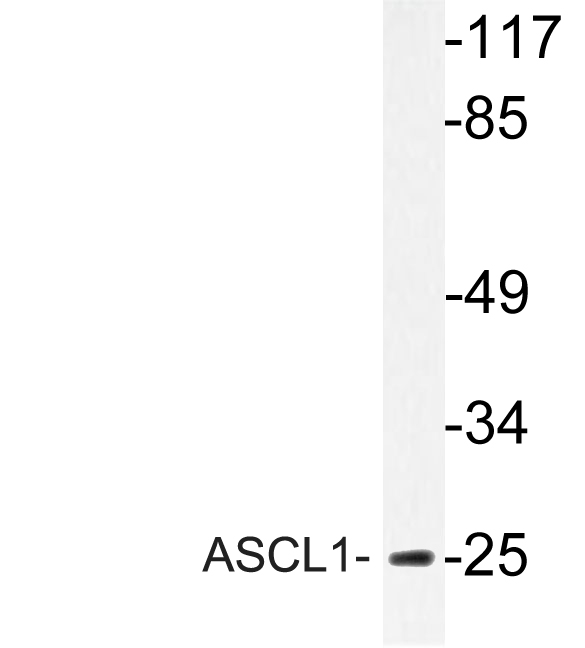
WB analysis of mouse (Lane A) and rat (Lane B) lung lysates (35μg protein in RIPA buffer) using GTX01090 ASCL1 antibody. Dilution : 1μg/ml
ASCL1 antibody
GTX01090
ApplicationsWestern Blot
Product group Antibodies
ReactivityHuman, Mouse, Rat
TargetASCL1
Overview
- SupplierGeneTex
- Product NameASCL1 antibody
- Delivery Days Customer9
- Application Supplier NoteWB: 0.3-1microg/ml. *Optimal dilutions/concentrations should be determined by the researcher.Not tested in other applications.
- ApplicationsWestern Blot
- CertificationResearch Use Only
- ClonalityPolyclonal
- Concentration0.5 mg/ml
- ConjugateUnconjugated
- Gene ID429
- Target nameASCL1
- Target descriptionachaete-scute family bHLH transcription factor 1
- Target synonymsASH1, HASH1, MASH1, bHLHa46, achaete-scute homolog 1, ASH-1, achaete scute protein, achaete-scute complex homolog 1, achaete-scute complex-like 1, class A basic helix-loop-helix protein 46
- HostGoat
- IsotypeIgG
- Protein IDP50553
- Protein NameAchaete-scute homolog 1
- Scientific DescriptionThis gene encodes a member of the basic helix-loop-helix (BHLH) family of transcription factors. The protein activates transcription by binding to the E box (5-CANNTG-3). Dimerization with other BHLH proteins is required for efficient DNA binding. This protein plays a role in the neuronal commitment and differentiation and in the generation of olfactory and autonomic neurons. Mutations in this gene may contribute to the congenital central hypoventilation syndrome (CCHS) phenotype in rare cases. [provided by RefSeq, Jul 2008]
- ReactivityHuman, Mouse, Rat
- Storage Instruction-20°C or -80°C,2°C to 8°C
- UNSPSC12352203








